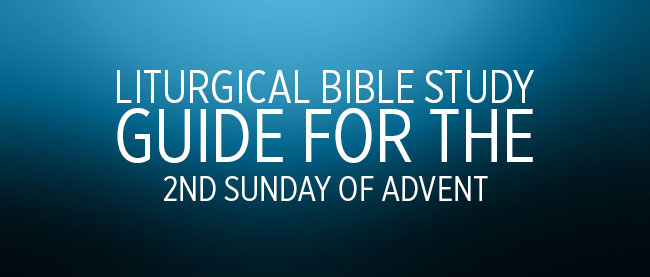Introduction
Advent is really a season in 2 parts, with the 1st two weeks concerned with the Lord’s coming as Judge of all at the end of time and the 2nd two weeks serving as the proximate preparation for His coming in the flesh. Our activities, like the Church’s readings, should reflect that dual character.
The Old Testament readings of Advent set the mood and theme each week. As we hear these readings, we need to look at our own dreams and expectations. How do we express them? The prophets of the Old Testament used beautiful poetic expressions, such as the lamb lying at peace with the lion, swords being beaten into plowshares, and the great banquet to come that will be presided over by the Lord. What poetic and symbolic expressions would we use to describe the age that is to come when we will know the Lord fully? What does the “Day of the Lord” mean for us? Can we identify with the dreams of the prophets? Advent is a season of anticipation.
1st Reading – Isaiah 11:1-10
The holiness of the one God, creator and master of the world, dominates the message of Isaiah. Yahweh is the Holy One of Israel. Isaiah is intensely aware of his own sinfulness and that of his people. Sin in any form cannot be tolerated in God’s holy presence; consequently Isaiah denounces Judah’s pride, self-indulgence, and callous injustice toward the poor. Isaiah is convinced that Yahweh is about to strike down the nation in judgment. Not only will the land of Palestine be laid waste but all nature will be involved; the sin of man has affected the whole universe. Yet, Judah is still Yahweh’s people, Jerusalem is the holy city whose foundation is secure. There will be a remnant, cleansed in the fire of judgment, who will be the inheritors of the promises made to David.
2nd Reading – Romans 15:4-9
The Letter to the Romans was probably written in Corinth, toward the end of Paul’s third missionary journey, shortly before he returned to Jerusalem in the spring of AD 58.
Romans is not a summary of Christian doctrine, nor is it Paul’s last will and testament – it isn’t even a full sketch of Paul’s view of Christianity. Some of Paul’s most significant teaching (the Church, the Eucharist, the resurrection, for example) are missing from it. Rather, it is a presentation of his missionary reflections on the historic possibility of salvation now offered to all men in the good news of Jesus the Christ. Paul knows that man’s justification and salvation depend not on the “deeds of the law,” but on faith in Christ Jesus, the Son whom the Father’s love did not spare. Through faith man shares in the effects of the plan of salvation conceived by the Father and brought to realization in the death and resurrection of Jesus.
Our reading today comes from a section of the letter that discusses the demands of living the Christian life and our motivation for doing so.
Gospel – Matthew 3:1-12
On the feast of the Immaculate Conception we hear of the Annunciation. In this reading we hear John the Baptist announce the coming of the Messiah some 30 years later; the beginning of Jesus’ public ministry.


